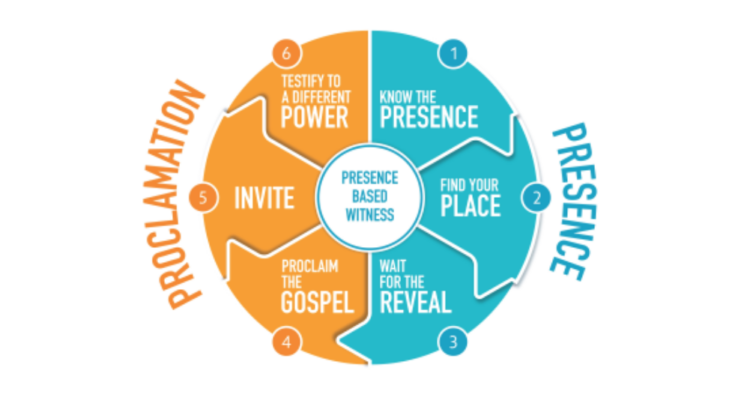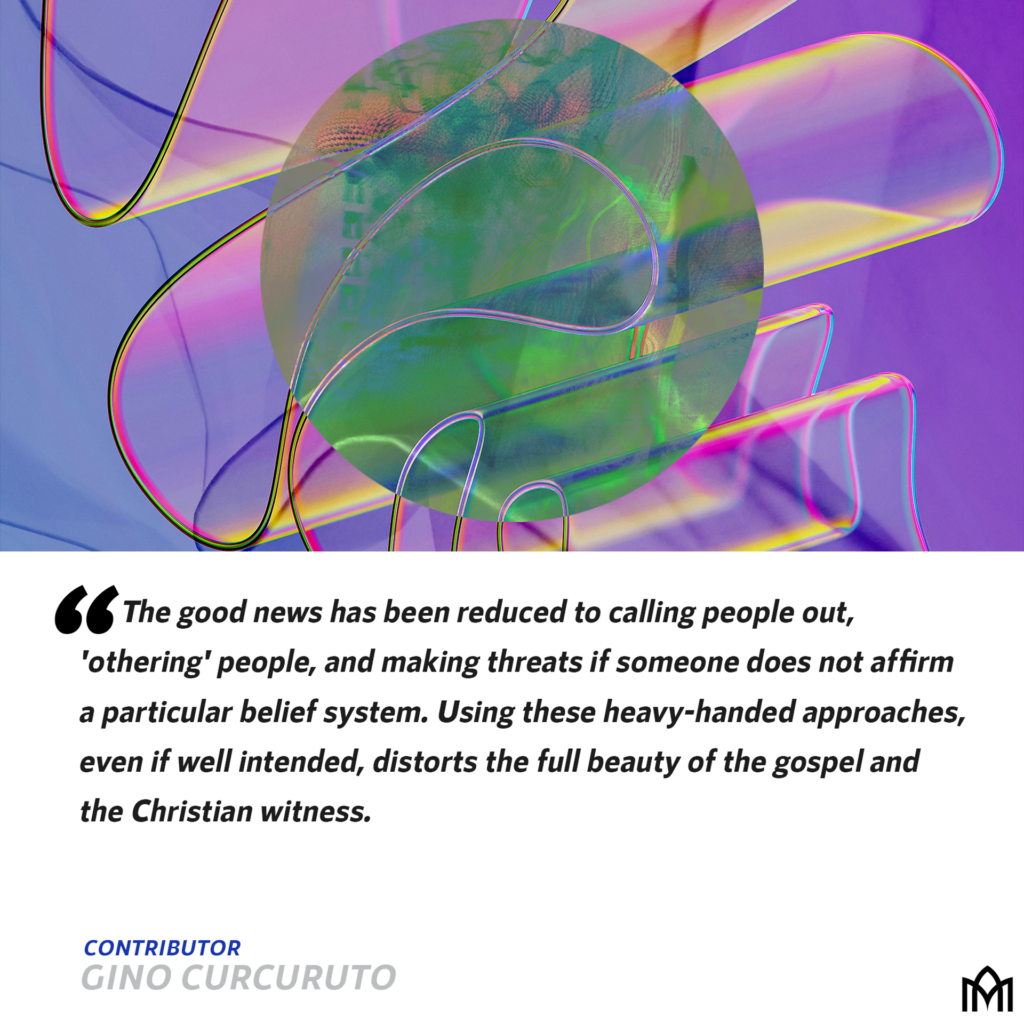Evangelism: The Good News Gone Badly
Sadly, sharing the glorious good news of Jesus with others, what is commonly known as evangelism, has been reduced to merely telling someone information about Jesus (and often in a forcefully bad way). It has become mainly an intellectual transaction. Even worse, the word evangelism is associated with coercive tactics such as threats of hell and punishment for those who do not “invite Jesus into their heart.” Rather than being heard as news that is good, the good news (the Greek, ‘evangel’) has been reduced to calling people out, ‘othering’ people, and making threats if someone does not affirm a particular belief system. Using these heavy-handed approaches distorts the full beauty of the gospel and the Christian witness. This form of evangelism badly misses the mark, particularly in post-Christian contexts where Christ-followers lack the authority and trust to be listened to like we once were. However, this is not merely a contextual issue around power and trust for our post-Christian evangelism – there is also a growing concern with the content of our proclamation.
The transactional, ‘get-out-of-hell-free-Jesus-for-your-after-life’ content of most evangelism overly reduces the narrative of Jesus so much as to alter the narrative of Jesus completely. It compresses the whole of the gospel, as the good news of the person and work of Jesus as Savior, Sanctifier, Healer, and Coming King is reduced into a one-time transaction rather than a way of life with Jesus. The gospel tells the story of how God, through Jesus, introduces the Kingdom into current reality in part now and in wholeness later, who by the Spirit continues the witness and work of this already/not yet kingdom through a community of people (the Church) who live as a contrast society to the world; in but not of the fragmented world of sin. Through the Triune God and for God’s glory, the Church is a gathered people of reconciliation sent on an incredible adventure to demonstrate and declare that the way the world is now is not how it always will be.
In short, to reduce the gospel to a mere transaction for fear of punishment is not to witness to the fullness of the way of Jesus. It truncates the narrative of Scripture as if the story of God began in Genesis 3 (“You’re a sinner!) and ends with Revelation 20 (“And you’re going to pay for that!”). Heavens no! There is so much beauty and hope in starting with the beginning (Genesis 1) and sharing the full eschatological hope of the Scriptures!
We need a different way of participating in evangelism. Truthfully, we need to return to an ancient way informed by our post-Christian cultures and avoid the colonial instinct for control and domination. We need to pause and reimagine what evangelism might become if we see it as extending from our communal witness and changing how we participate in the work God is already doing in and among our neighbors and cities.
The gospel tells the story of how God, through Jesus, introduces the Kingdom into current reality in part now and in wholeness later. (1/3) Share on X
Jesus, by the Spirit, continues the witness and work of this already/not yet kingdom through a community of people (the Church) who live as a contrast society to the world; in but not of the fragmented world of sin. (2/3) Share on X
Through the Triune God and for God’s glory, the Church is a gathered people of reconciliation sent on an incredible adventure to demonstrate and declare that the way the world is now is not how it always will be. (3/3) Share on X
To reimagine evangelism for our current times, David Fitch and I submit a different model for your consideration. We call it Presence Based Witness (or presence evangelism). Our short book of the same title aims on providing a framework for witness in a post-everything world.

This resource will not provide all the answers because we do not have them. What we do have are years of experience tending to the presence of God and the work of the Spirit in our own neighborhoods. We have curious minds that ask questions of God and others and have identified a framework for describing a different shape for evangelism. It begins by seeing evangelism as witness to what Jesus is already doing and faithfully tending to that with others.
We describe the framework of witness through the interplay and overlap of six steps in two parts. The two parts are presence and proclamation.
- Presence based witness is about the nature of one’s posture with someone and with God. Being present is relational and often requires time.
- Proclamation based witness is shaped not only by the content of what is proclaimed but also by an understanding of the way language works within culture. As a witness of and to the work of God, we learn to submit to the power of God that we might live and share in that power rather than our own.
We submit that faithful witness, which could be called evangelism, occurs in the overlap of presence, proclamation, and power. All of this can be clearly seen in Luke 10, which serves as the basis for our work. We seek to learn from Jesus and follow Him. We contend that presence, proclamation, and power must all be reshaped in the way the church engages the world for the witness of the gospel. That is what we aim to help you see.
///
Presence based witness is about the nature of one’s posture with someone and with God. Being present is relational and often requires time. (1/2) Share on X
Proclamation based witness is shaped not only by the content of what is proclaimed but also by an understanding of the way language works within culture. We learn to submit to the power of God that we might share in that power. (2/2) Share on X
*Editorial Note: Gino Curcuruto and David Fitch are long-time friends of Missio Alliance. Preorder Presence Based Witness, their short book, here. ~CK




